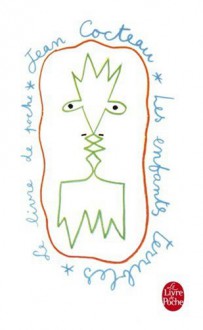Les Enfants terribles
by:
Jean Cocteau (author)
Jean Cocteau -- poet, novelist, dramatist, artist, musician -- was a leading figure in the Surrealist movement. In addition to his popular novel Les Enfants Terribles (1929), he is best remembered in the English-speaking world for the film Orphée (1950).
Jean Cocteau -- poet, novelist, dramatist, artist, musician -- was a leading figure in the Surrealist movement. In addition to his popular novel Les Enfants Terribles (1929), he is best remembered in the English-speaking world for the film Orphée (1950).
show less
Format: mass market paperback
ISBN:
9782253010258 (2253010251)
Publish date: February 2013
Publisher: Le Livre de poche
Pages no: 124
Edition language: French
Category:
Classics,
Novels,
Literature,
European Literature,
Cultural,
Literary Fiction,
20th Century,
Plays,
Theatre,
Poetry,
France,
French Literature,
International

Cette espèce de confort n'influençait guère les enfants, car ils avaient le leur et il n'était pas de ce monde. (This kind of comfort hardly influenced the children, because they had their own and it wasn't of this world.) Not of this world, truly. Paul and Elisabeth, brother and sister, 14 and...

A Bizarre Story- In 'Les Enfants Terribles', Cocteau gives the reader a melodramatic view of adolescence, void of innocence and filled with darkness; a peculiar relationship between brother and sister of excessive indulgence, petulance, childish pettiness and selfishness. Paul and Elisabeth contri...

When me and my sister were younger – like four and five, or five and six – we used to play these epic games in the back seat of our parents' car on long journeys. The car was a big old Citroën estate, like the vehicle from Ghostbusters, and the back seat folded down to form a huge play area (this wa...

A sort of surrealist reading. A love and hate experience of two orphan siblings (Paul, Elisabeth) which includes games (The Game, actually - their game) and plays that replace the real life. These games and especially the plays require partners and, mostly, an audience (Gerard, Agathe). And when the...

